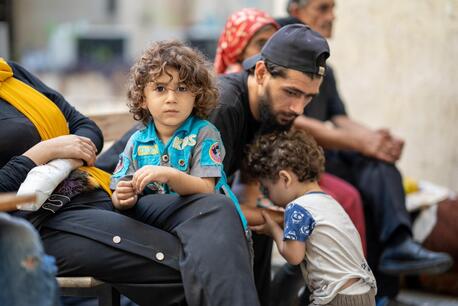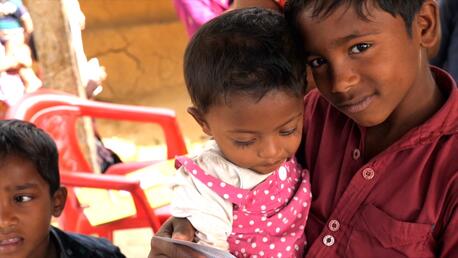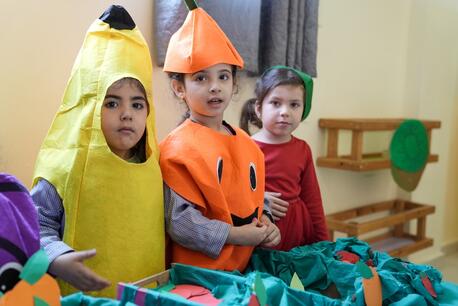
5 Ways UNICEF Helps Children in Lebanon
UNICEF Lebanon is working with partners to ensure every child has a healthy childhood and the opportunity to reach their full potential.
Children in Lebanon face multiple overlapping crises
Lebanon is a country full of challenges and resilience. The impact of COVID-19, conflicts in surrounding countries and an economic and financial meltdown have all taken their toll. Lebanon hosts the world's highest number of displaced persons per capita, including 1.5 million Syrian refugees who have arrived since the start of the war in Syria 13 years ago. For more than 60 years, Lebanon has also hosted Palestinian refugees, which currently number around 210,000.
Faced with widespread job and income losses, high inflation and a critical shortage of essential goods and services like electricity and medicines, a growing number of people in Lebanon can no longer afford to meet their basic needs. Families are increasingly resorting to negative coping mechanisms — with rising numbers of children out of school, they are entering the workforce and facing heightened risks of exploitation and abuse.
UNICEF Lebanon has been providing life-changing support for children and their families in Lebanon for over seven decades. Below are some examples of how UNICEF is making a difference.
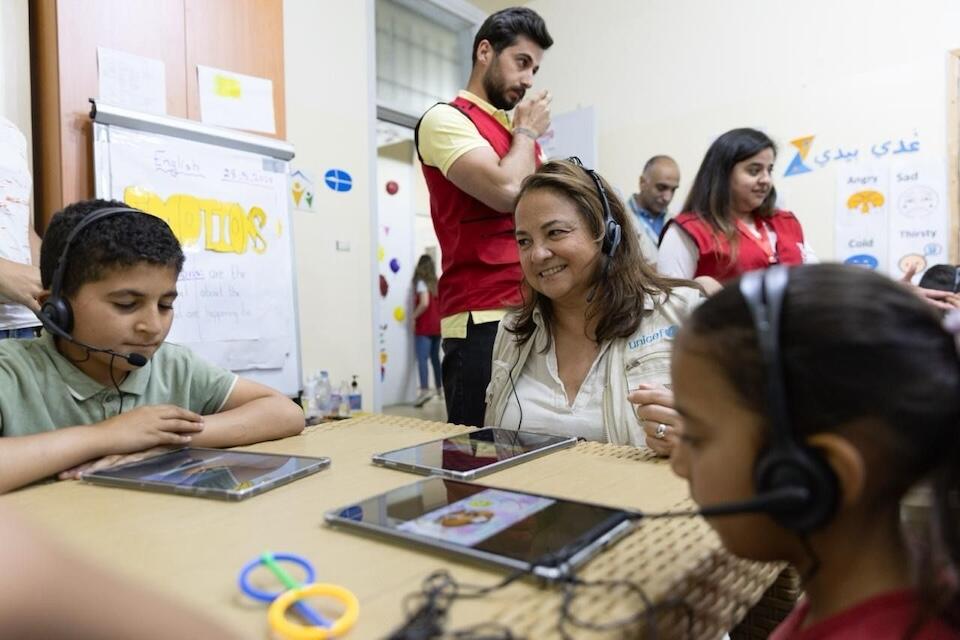
1. Helping students catch up on lost learning
Children in Lebanon have had their education disrupted for the past five years by the pandemic, ongoing economic pressures and other challenges. To help learners resume their education, UNICEF adjusted its strategy with a focus on skill building, catch-up programming and creative, adaptive support in both private and public schools.
To bridge knowledge gaps in math, science, English and Arabic in a safe and inclusive environment, UNICEF launched a summer school catch-up program. At UNICEF-supported Makani Centers (meaning “my space” in Arabic), children in marginalized communities, including children with disabilities, are able to learn and access other services all in one place. The Makani staff are hired from the local community whenever possible, helping to provide vital employment opportunities.
2. Leading community conversations to shift harmful social norms
UNICEF Lebanon is using a pioneering child protection strategy to break the cycles of violence against children and women. Called Qudwa (meaning 'role model'), the program uses grassroots-led community conversations to address sensitive issues like child labor, child marriage and violence against women and children in both Lebanese and non-Lebanese communities.
The approach is aimed at addressing the root causes of harmful practices while encouraging behaviors that promote well-being, dignity and equality. Since Qudwa's launch in 2022, more than 200,000 community members across Lebanon have participated in community conversations.
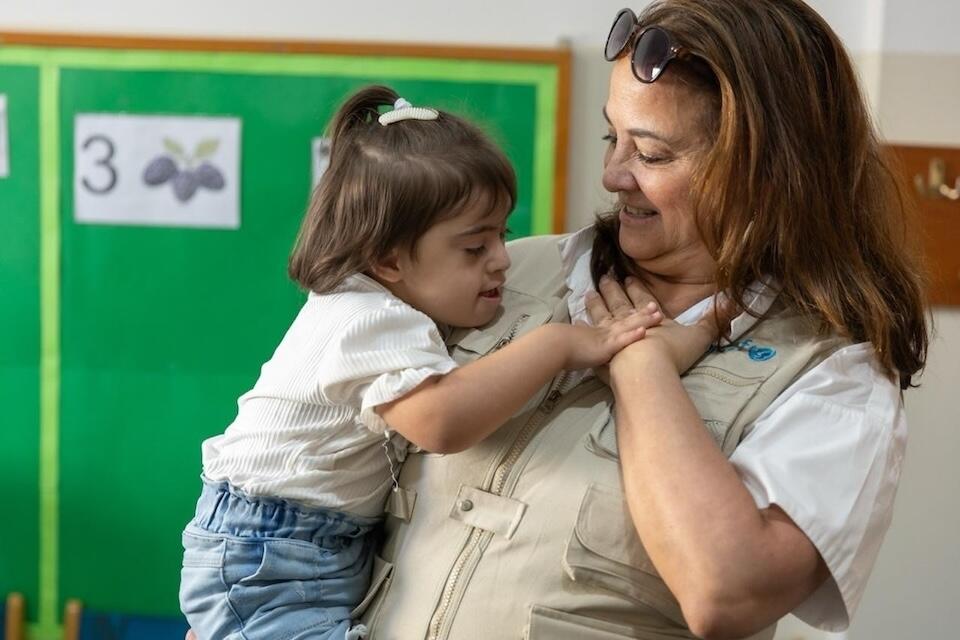
3. Integrating services for children with disabilities
The number of people with disabilities in Lebanon is estimated at 900,000. UNICEF has been working closely with non-formal education partners to integrate children with mild to moderate disabilities in their services and strengthen education systems so girls and boys with disabilities have equal access to quality services. In Tripoli, one such center is supporting 185 children and 177 caregivers. Pre- and post-test results show significant improvement in children’s attitudes and behaviors after attending the centers; children show increases in confidence, activity, sociability, curiosity and interaction.
4. Improving water infrastructure
Even though Lebanon is a small country, it's the site of one of UNICEF's largest water, sanitation and hygiene (WASH) programs, benefitting both Lebanese and non-Lebanese communities. Lebanon's water infrastructure faces significant challenges, including aging pumping stations and reservoirs, water scarcity and pollution, which limit the availability of safe water, leading to health risks and waterborne diseases.
UNICEF has been supporting the repair and maintenance of water stations in Lebanon since 2020, including the rehabilitation of 32 water systems across the country. Stations are equipped with solar energy to reduce the dependence on electricity from the unreliable grid and costly diesel generators. Investments in water infrastructure not only improve the level of service but also build trust in communities, who are the customers for services.
5. Supporting young entrepreneurs
UNICEF is working with and for young people to help them reach their full potential. Youth in Lebanon are disproportionately affected by unemployment, social unrest and instability, all of which limit their opportunities. UNICEF’s Generation of Innovation Leaders (GIL) program is supporting young entrepreneurs to develop innovative, income-generating solutions to problems in their communities.
One such solution is Hydrogreen, a startup taking a fresh approach to the demands of agriculture in the context of the climate crisis. This project provides a more efficient and less expensive way of growing crops, reducing water waste by 90 percent, without pesticides. The result is the cultivation of a large amount of high-quality produce within a small space. In 2022, UNICEF reached more than 3,000 young entrepreneurs with digital training, mentoring and seed funding to help turn innovative ideas into reality.
UNICEF USA is allocating $150,000 from the Mercury Fund to support work across the UNICEF Lebanon country program to further its work for children.
Learn more about UNICEF's ongoing program work in Lebanon.
HOW TO HELP
There are many ways to make a difference
War, famine, poverty, natural disasters — threats to the world's children keep coming. But UNICEF won't stop working to keep children healthy and safe.
UNICEF works in over 190 countries and territories — more places than any other children's organization. UNICEF has the world's largest humanitarian warehouse and, when disaster strikes, can get supplies almost anywhere within 72 hours. Constantly innovating, always advocating for a better world for children, UNICEF works to ensure that every child can grow up healthy, educated, protected and respected.
Would you like to help give all children the opportunity to reach their full potential? There are many ways to get involved.



